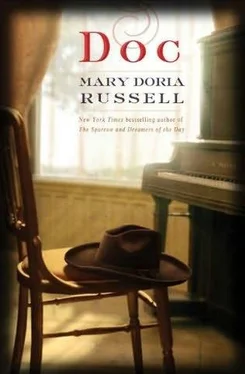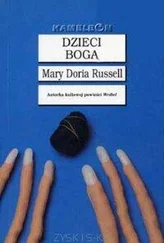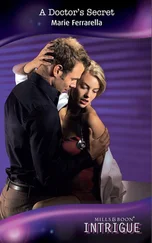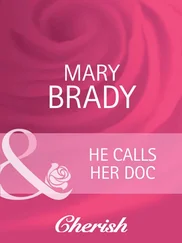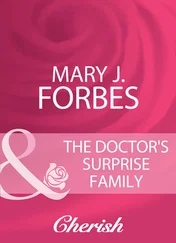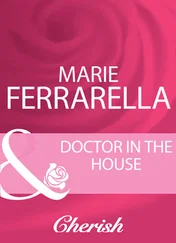John Henry Holliday was better in every way he could think of.
It didn’t occur to him to think that better is not the same as well.
Was he fooling himself? He would not have said so. Even at twenty-two, when his diagnosis was confirmed, he was realistic. Most suffer. Everyone dies. He knew how, if not when.
Now more than ever, he was determined to cheat the Fates of entertainment, but naturally, his time would come. When it did, he believed he would accept death as Socrates had: with cool philosophical distance. He would say something funny, or profound, or loving. Then he would let life fall gracefully from his hands.
Horseshit, as James Earp would say, of the highest order.
The truth is this. On the morning of August 14, 1878, Doc Holliday believed in his own death exactly as you do—today, at this very moment. He knew that he was mortal, just as you do. Of course, you know you’ll die someday, but … not quite the same way you know that the sun will rise tomorrow or that dropped objects fall.
The great bitch-goddess Hope sees to that.
Sit in a physician’s office. Listen to a diagnosis as bad as Doc’s. Beyond the first few words, you won’t hear a thing. The voice of Hope is soft but impossible to ignore. This isn’t happening , she assures you. There’s been a mix-up with the tests . Hope swears, You’re different. You matter . She whispers, Miracles happen . She says, often quite reasonably, New treatments are being developed all the time! She promises, You’ll beat the odds .
A hundred to one? A thousand to one? A million to one?
Eight to five , Hope lies.
Odds are, when your time comes, you won’t even ask, “For or against?”
You’ll swing up on that horse, and ride.
A week earlier, while enjoying a state of happiness as profound and unexamined as Doc’s own, Alexander von Angensperg had come at last to the border of the Indian Territory. There the Great Western Trail was a wide path beaten into the grassland by millions of hooves. Trusting that it would lead him to the German farming communities of Ford County in southwestern Kansas, Alexander turned Alphonsus northward.
Pasturage improved steadily. Approaching the Arkansas River, he began to encounter cattle companies that had paused to fatten their herds before sale in Dodge. He camped with several crews overnight, but his days were spent alone until a clear mid-August morning, when he saw in the distance a coal-black dot, startling against the sunlit grass.
A lone surviving bison, he supposed, forlornly searching for a companion. But as Alexander closed on it, the shape gradually resolved into a fine dark stallion with a slender, smiling rider. It seemed a message from God when this person called out a quote from Saint Paul.
“ Put to death that which is earthly in you: fornication, impurity, passion, evil desire, covetousness … ridin’ a respectable horse.”
“Dr. Holliday!” Alexander cried, adding with astonished delight, “You look … well!”
“Very kind of you to say so, sir. I am well!” Doc declared, leaning over to offer his hand. “Keats and Shelley went to France and Italy for their cure. Kansas doesn’t have the same cachet, but then I am a dentist and not a poet. What is a refined Austrian hyparchos like yourself doin’ on an ugly mule like that?”
“The Lord’s work,” Alexander replied, feeling sure of it now. “That is a splendid animal you have!”
“Isn’t he a daisy? When I bestride him, I soar, I am a hawk! He trots the air; the earth sings when he touches it! ”
“Homer …? No! Wait— Henry V !”
“Full marks!” Doc cried, reining around. “Father von Angensperg, may I present Dick Naylor? A quarter-miler to be reckoned with.”
“And this is Alphonsus,” Alexander replied, “a mule aptly named for a saint of many virtues.”
As though no time had passed since their first meeting, they tumbled into a conversation that began with Alexander’s now unabashed admiration for Alphonsus and Doc’s gracious admission that mules were highly prized in the South and considered superior to horses for many purposes. This led to a discussion of mule breeding, and that to horse breeding, and that to Wyatt Earp, who hoped to build a stud farm around Dick Naylor.
“I fear you have missed Wyatt again, sir,” Doc told Alexander. “He’s in Topeka, at the state convention of the Republican Party—” His lip curled at the words, and he added a confession dark with melodrama: “I have fallen in with evil companions.”
From there, the conversation veered off toward the score for Brahms’ Second Symphony, which Alexander had sent two months earlier, and that became a discussion of its orchestration. Music persisted as their topic until Dodge became visible in the distance, and Doc suggested that they have lunch together after he attended any patients that might be waiting for him. “Have you ever tried Chinese food?” Doc asked. “I have developed a taste for it, myself.” It was an enthusiasm he had passed on to Morgan and Wyatt, he told the priest, and with the expansiveness that comes with recovered health, Doc had urged Jau Dong-Sing to open a restaurant on Front Street, even promising that he and Kate would invest in the venture.
“Ah … so Athena has rejoined you?” Alexander asked carefully.
“Adjustments made,” Doc said briefly. “Compromises reached.”
The couple had come to an agreement about his working hours after Doc conceded that he’d been burning the candle at both ends while getting started in Dodge. Things were going well now, and he felt sure he would one day have as large a practice as he had cared for back in Georgia. People were even coming in by train, some from as far as Wichita.
Struck by this news, Alexander asked if he might propose a short trip east. The students at St. Francis would benefit from the attention of a dentist, he told Doc. “We couldn’t pay you much,” the priest admitted. “Perhaps a train ticket—”
“Nonsense!” Doc cried. “I will do the work pro bono , of course. My Catholic cousin Martha Anne will be happy to know I am assistin’ you in your work at the mission. Can you wait until October? I hate to leave Dodge during the cattle season, but I expect things to quiet down in the autumn.”
Just then a black-tailed jackrabbit flashed by. Alphonsus walked steadily on, but Dick Naylor shied and danced.
“He has taken a dislike to dogs recently,” Doc remarked, wheeling Dick until the horse settled. “I imagine anything crossin’ his path looks fearsome now.”
This reminded Alex of a cavalry charger he’d once owned. (“Valiant under cannon fire! Terrified of chickens!”) The rest of the ride was passed in an amusing exchange regarding the irrationality of horses, during which Doc alluded to his participation in the Fourth of July race. (“Do tell, sir! I am agog with anticipation!” Alexander cried.) The story of the fall was alarming, but the dentist assured the priest that he had recovered fully and felt entirely well now. Certainly he looked and sounded vastly better than he had in May, when he was exhausted and a good deal paler.
“When, exactly, did your condition begin to improve?” Alexander asked. “May I guess? A fortnight ago?”
“About then. Why?”
“I am curious, only,” Alexander said, giving silent thanks to Mary Clare, for he had been praying for John Henry Holliday since turning north toward Dodge. “If you come east in October, we could perhaps go to St. Louis for a few days! I understand the orchestra there is excellent.”
When they reached the tollbooth, Doc insisted on paying, and insisted as well that Alphonsus should have a night of luxury at the Elephant Barn, and that Alexander himself be Doc’s guest at Dodge House before continuing his circuit around Ford County. When Alexander began to thank him, Doc held up a hand.
Читать дальше
